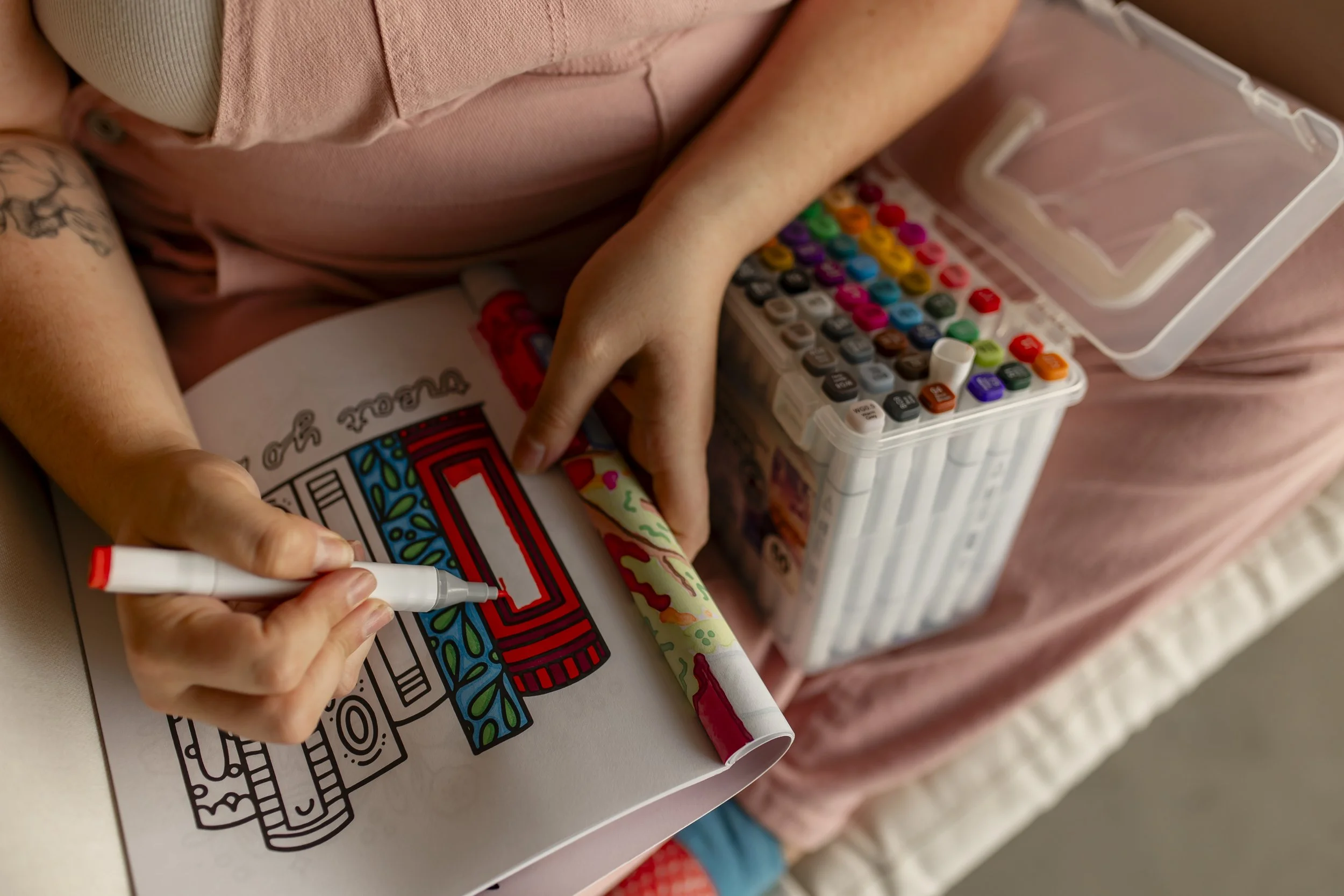When Holiday Cheer Meets Old Family Patterns
The holidays bring twinkle lights, warm meals, and moments of connection, but they can also bring tension, emotional pressure, and familiar family triggers that catch you off guard. You’re not alone if you feel the weight of holiday stress, or if being back in the same room with family brings up old wounds and complicated emotions.
At Inspired Healing Therapy, we often remind clients that these feelings don’t make you “dramatic” or “difficult.” They make you human. Family systems are powerful, and even as adults, stepping back into those dynamics can activate memories, body sensations, or narratives you’ve worked hard to move beyond.
The good news? You can prepare, respond differently, and protect your peace with boundaries, self-awareness, and compassion—for yourself and others.
Let’s explore how.
Why Family Triggers Surface During the Holidays
Family triggers often arise because holidays intensify:
expectations (“everyone should get along”),
traditions (which may not feel aligned with your values),
roles you used to play (“the quiet one,” “the fixer,” “the strong one”),
and contact with people who may not respect your autonomy.
Even if you’ve grown, healed, and changed, some families relate to you as the person you used to be. That mismatch can be painful — or simply exhausting.
Common holiday triggers include:
Unsolicited advice or criticism
Comments about relationships, marriage, or parenting
Pressure to attend events you don’t feel safe at
Conversations about politics, identity, or beliefs
Feeling like you have to “perform” or stay agreeable
Understanding these patterns is the first step toward changing them.
Setting Boundaries with Family: A Therapist’s Guide
Boundaries are not walls; they’re bridges toward connection that doesn’t cost your emotional health. They protect your time, energy, mental wellbeing, and sense of safety.
Here are some therapist-informed boundary-setting techniques to support you this season.
1. Set Expectations Before You Arrive
A simple proactive boundary can prevent loads of anxiety.
Try this script:
“I’m excited to see everyone, but I want to be intentional this year. I may step out to take breaks or leave early if I need to. I just want to give you a heads-up so we’re on the same page.”
You’re not asking for permission — you’re communicating clearly and respectfully.
2. Create Topic Boundaries
If specific conversations tend to escalate, you’re allowed to pivot or decline.
Try this:
“I appreciate your interest, but I’m not comfortable discussing that. Let’s talk about something else.”
Or a softer approach:
“Hmm, that’s a sensitive topic for me. Can we shift gears?”
3. Time Boundaries Are Valid
You can stay for two hours instead of all day. You can leave early. You can choose not to attend every gathering.
Try this:
“I won’t be able to stay for the whole evening, but I’m glad to stop by for a bit.”
This gives you a time container — a built-in exit.
4. Emotional Boundaries with Yourself
You might not be able to change how others behave, but you can set boundaries with your own reactions.
This may look like:
Not defending your choices to someone who isn’t actually listening
Letting go of the urge to “fix” family conflict
Reminding yourself, “Their reaction is not my responsibility.”
Boundaries are as much internal as external.
5. Physical Boundaries and Breaks
Sometimes a quick reset is everything.
You can:
Step outside for fresh air
Go to the bathroom to breathe intentionally
Take a short walk
Sit in your car and decompress
Text a supportive friend for grounding
Breaks are not avoidance — they’re regulation.
Self-Care That Keeps You Grounded
Self-care during the holidays is often less about bubble baths and more about emotional regulation.
Here are grounding practices we often share with clients:
1. Breathwork for Dysregulation
Try a slow 4-6 breathing pattern:
Inhale for 4 • Exhale for 6
This tells your nervous system: “We are safe.”
2. Intentional Transitions
Before you walk into a gathering, ask yourself:
“What do I need to feel supported today?”
When you leave, ask:
“What do I need to release from this experience?”
3. Protect Your Energy
Not every conversation is yours to hold. Not every conflict is yours to mediate. Not every question deserves an explanation.
4. Plan a Comfort Ritual for Afterward
This might be:
Soft music
A warm drink
Journaling
Calling a friend
Watching a comfort show
Going straight to bed
Care for the version of you who tried your best.
Reflective Prompts for Post-Holiday Recovery
These prompts help you integrate the experience and prepare for what you may want next year.
What moments felt grounding or supportive?
Where did I feel tension, and what triggered it?
What boundary worked well? What would I do differently next time?
How did I take care of myself afterward?
What do I need now to feel re-centered?
Your reflections can become tools for future clarity.
Compassion: The Common Thread
It’s easy to get swept up in frustration during the holidays — especially when old patterns resurface. But compassion is an anchor.
Compassion doesn’t mean tolerating harmful behavior. It means holding space for the complexity of being human — for yourself and others.
As therapists, we often remind clients:
“Your healing doesn’t require your family’s understanding.”
You can honor your growth even when others don’t recognize it.
You can show compassion while honoring your boundaries.
You can love people and still choose yourself.
If the Holidays Bring Up Pain, You Don’t Have to Navigate It Alone
Holiday stress is real. Old triggers are real. The desire for connection mixed with the fear of conflict is real.
If you’re feeling overwhelmed—or if you want support creating healthy boundaries this season—our therapists at Inspired Healing Therapy are accepting new clients and are here to help.
We offer compassionate, trauma-informed support for individuals who want to feel grounded, empowered, and emotionally safe during the holidays and beyond.
You deserve peace. You deserve boundaries. You deserve support.
Schedule a session with us at:
👉 https://www.inspiredhealingtherapy.com/contact
FAQs
Q: What if setting boundaries with my family makes me feel guilty?
That’s normal. Guilt often shows up when we start prioritizing ourselves. It’s a sign of growth, not wrongdoing.
Q: Is it okay to skip family gatherings altogether?
Absolutely. Your well-being matters more than tradition or obligation.
Q: How can therapy help with holiday stress?
Therapy provides tools for emotional regulation, communication, boundary-setting, and processing old family wounds that may resurface.
Q: What if my family reacts poorly to my boundaries?
You can’t control their response — only your own choices. A therapist can help you navigate the emotional aftermath with clarity and support.
We see you and want to support how we can, so I created the Take a Moment Printable Guided Journal for Mindfulness, Reflection & Gratitude for you. The digital version is on sale this month, so head on over to our Therapy Shop to add to your self-care tool box this season.
Take a Moment Self-guided Journal





